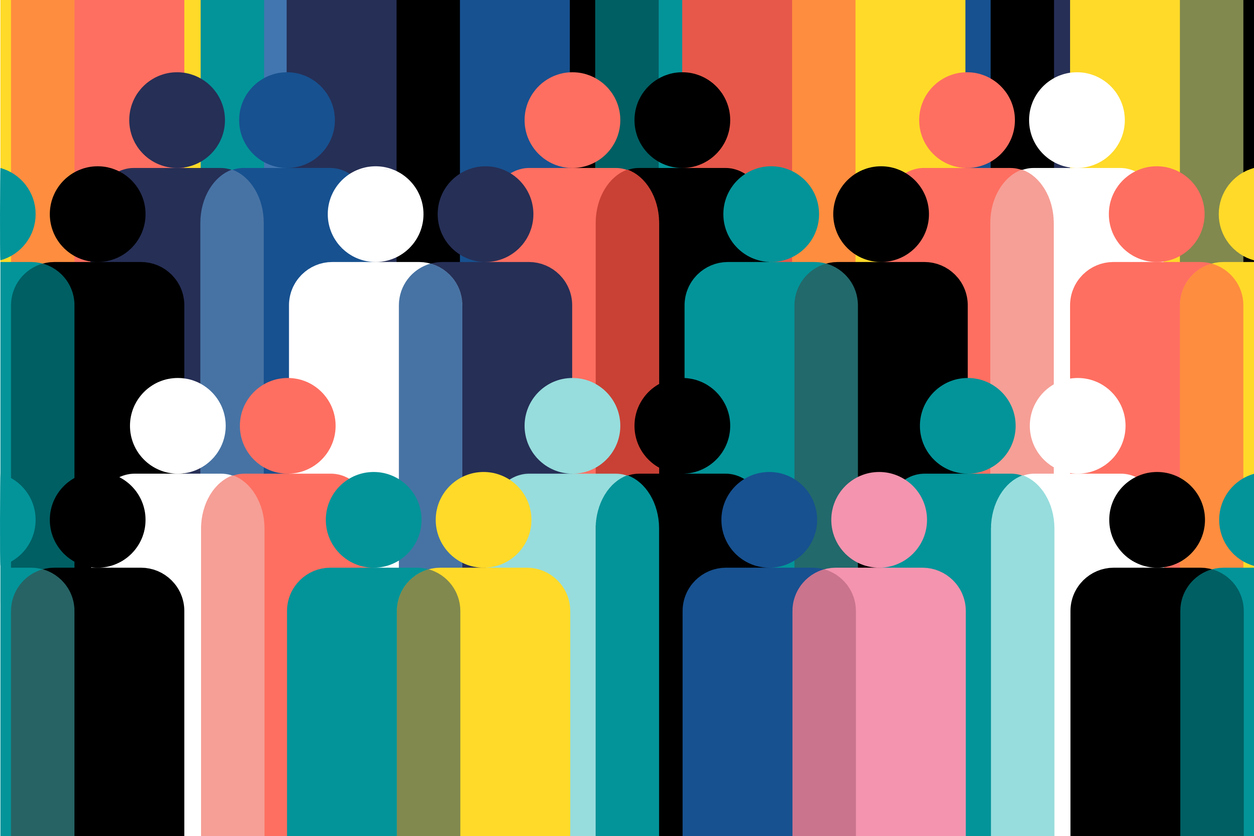
We’re all different. That’s something to recognize and celebrate. But why should that be top of mind when you want to build an online peer support community?
Simply put, it influences how we interact, learn and share with others.
Are you an extrovert or an introvert? Chances are you’re somewhere in between. It might also shift more one way or the other on any given day, depending on the situation.
How best do you learn, retain and share information? Also not clear cut, but would you choose reading/writing vs visuals or listening, or even a more hands-on, practical approach? Does it, again, depend on the situation or topic?
Avoid the trap of “one-size-fits-all”
My goal isn’t to dig into the science on personality traits and learning styles but to highlight two important concepts to consider when we’re thinking about the value of a peer health support community:
- A “one-size-fits-all” approach to building a community isn’t as engaging or sustainable over the longer term.
- You can’t expect all members to behave the same way and always be active.
Do forums or discussion boards come to mind when you think about online communities? These work well for that quick “back and forth” with small amounts of content that can form valuable building blocks of knowledge. It also helps new members to get their feet wet. But what if you have more of a story or experience to share? What if you want to build a stronger connection with just one or a handful of members? What if you’re looking for credible resources that you can trust? Trying to meet these needs when you only offer forums feels like forcing a square peg in a round hole or a “one-size-fits-all” approach.
Our choices reflect who we are as individuals
It matters to be able to offer choices on how we learn, share and interact with others, not just because of how we are as individuals. For a peer support community, it provides an added sense of control and autonomy, which is important when talking about our health. If it’s the same experience on offer each and every time, there’s also the added risk that members will go elsewhere to address the changing needs that make up their health journey.
Let’s look at those scenarios again and some of the features we offer with our community platform.
- Forums – to share knowledge in bite-sized pieces, a quick back and forth.
- Journey blogging – to learn and share experiences through longer stories.
- Chat and inbox messaging – to develop stronger one-to-one connections.
- Close Circle private spaces – to create a tight group or network of trusted support.
- Knowledge Center – to access credible resources and interactive tools on many health topics in one place.
Respond when the need is there
Being different also means that, as members, we won’t all react or behave the same way. In the context of peer health support, they might not always be active and looking for help. This shouldn’t be a surprise, or a bad thing, as we often describe our health and wellbeing as a journey. Given that our needs and goals can change anytime and whole families feel the effects, these journeys are also not straight lines or predictable.
Consider the needs and potential value of a peer support community for someone managing a chronic condition, someone concerned about their mental and emotional health, or someone wanting to overcome unhealthy lifestyle choices. They all would benefit from peer support, but ongoing or episodic needs, or a combination of both, could be driving their current behavior and participation in the community – it’s hard to predict. Extend those needs to include looking after loved ones or multiple health conditions, you’re faced with not one but many paths to navigate!
When they need help, the community needs to be there with peer support.
Viewers, not lurkers, please
So, what about lurkers? These members come to the community, but they’re not posting content or visibly engaging with other members. Most new members often start out this way. While the goal is to create a trusted environment where members feel safe and motivated to share their health stories, it’s important to understand that some won’t take this step forward. But don’t be mistaken. This behavior doesn’t mean they’re not benefiting from the community, and it’s why I don’t call them lurkers but viewers. They meet their needs as consumers of the content shared by other members or from the credible resources available. They’re able to see that others are experiencing similar health situations and that they’re not alone, and this can be powerful when it comes to peer support, building confidence, and self-efficacy.
Yes, growth and engagement levels tied to content creation and member interactions are critical indicators of success – and it’s important to encourage and facilitate these actions – but community engagement metrics need to dig deeper and be contextualized. Ultimately, it’s whether we’ve helped members progress towards their health goals, or along their journey, in the best way possible – their way.
Learn more about: Our Platform and Services and Our Approach
STAY IN THE LOOP
Subscribe for our news and updates.
DEI has evolved into DEIB - Diversity, Equity, Inclusion, and Belonging. At its core, the goal of building communities is to create a sense of belonging. Framed around health and wellbeing, online peer health communities are a great strategic fit for organizations.
Effective content moderation is critical for successful peer support sites. Done right, it ensures that your site feels welcoming and enhances your brand.
45% of employees are caregivers which can impact their health and workplace performance. Offering peer support is an effective way to help ease their burden.
Online peer support programs can increase the sense of community and provide opportunities to help others. As a result, peer support is an effective part of programs that address the current crisis in mental health.



